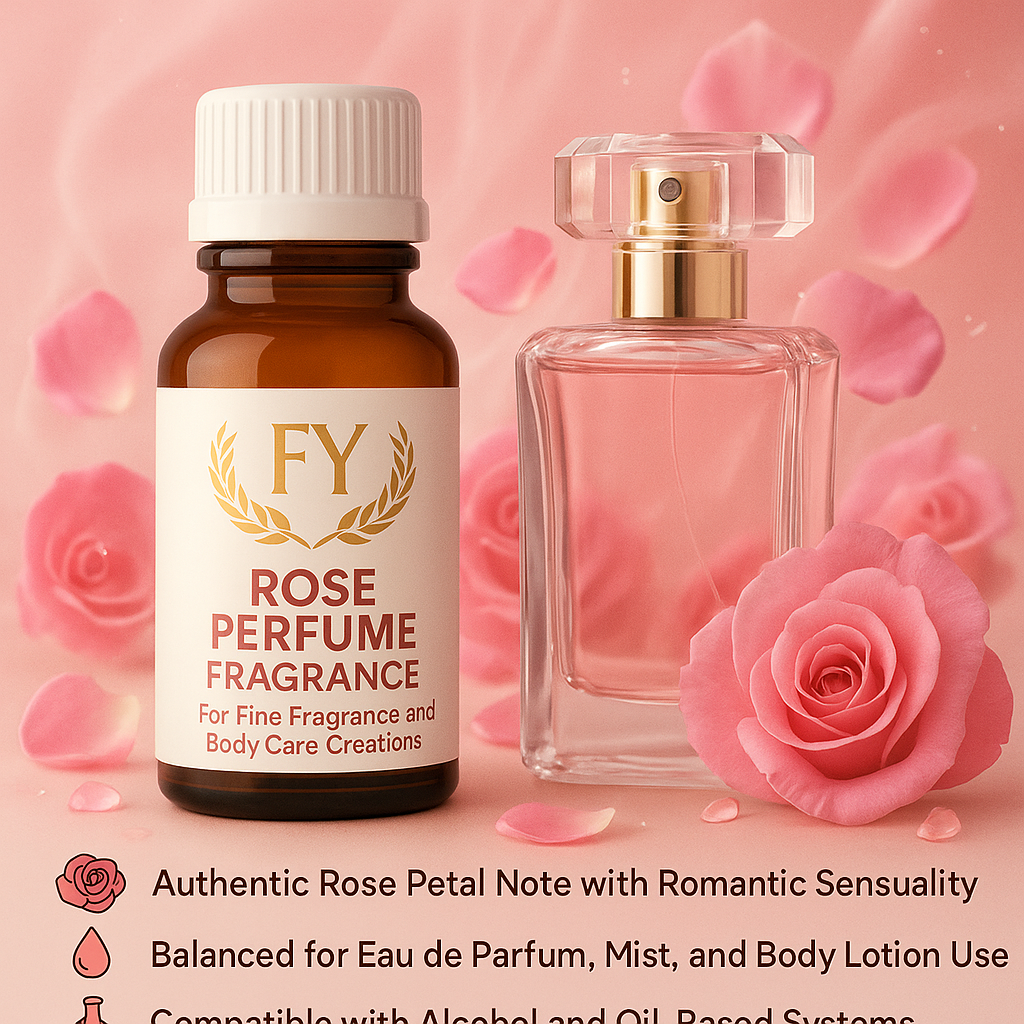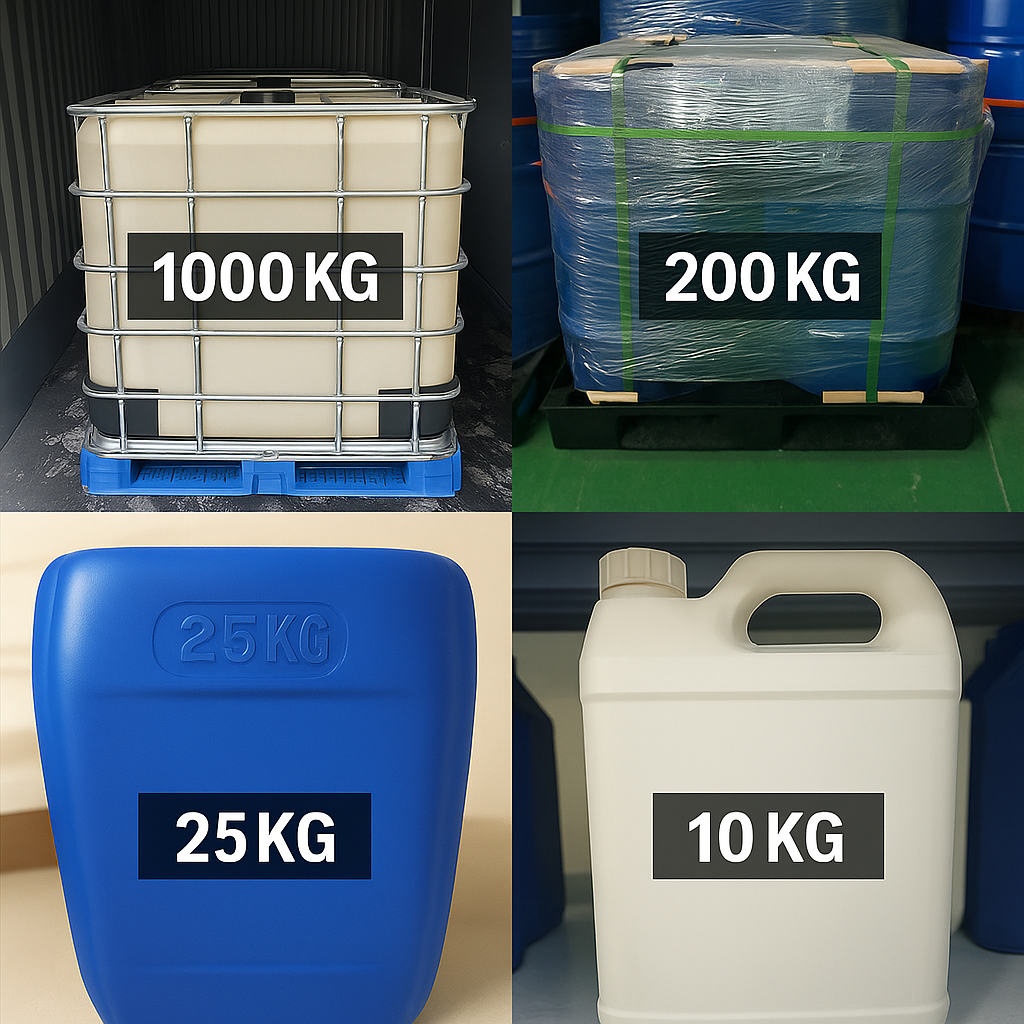Rose Perfume Fragrance
Rose Perfume Fragrance
Form: liquid|powder
Shelf life: 2/3 Years
Grade: Daily fragrance
Certification: ISO HACCP HALAL Ect
Specification selection:
Basic packaging: 10kg/barrel (suitable for sample testing and small batch purchases)
Standard packaging: 25kg/barrel (recommended specifications for conventional production)
Economic packaging: 200kg/IBC barrel (can enjoy the second tier discount of tiered pricing)
Bulk purchase: 1 ton/batch (use customized storage and transportation solutions to enjoy the best unit price)
Description
Rose Perfume Fragrance
🌹 Timeless Elegance Reimagined Through Modern Aromatic Science
🔹 Product Overview
Rose Perfume Fragrance is a refined aromatic creation designed to capture the romantic, powdery, and richly floral qualities of natural rose petals—while offering modern stability and formulation flexibility. This fragrance is developed for use in fine perfumery, body mists, and personal care applications, where sophistication and olfactive authenticity are essential.
Our formulation is available in both synthetic rose accords and natural extract-enhanced variants, meeting the diverse needs of high-end niche brands and large-scale commercial perfume manufacturers alike.
🧪 Synthetic vs. Natural Rose Fragrance: A Comparative Insight
| Aspect | Synthetic Fragrance | Natural Extract-Based Fragrance |
|---|---|---|
| 🌱 Source | Molecules like phenylethyl alcohol, geraniol, citronellol | Rose absolute or rose otto (steam-distilled oil) |
| 💰 Cost & Scalability | Affordable, scalable for mass-market | Expensive due to high petal-to-oil ratio (3–5 tons = 1kg oil) |
| 🧬 Consistency | Highly stable and reproducible | Aroma varies by origin (Grasse, Bulgaria, Turkey, Morocco) |
| 🌞 Light & Oxidation Resistance | Excellent shelf life | Susceptible to oxidation and discoloration |
| 📄 Labeling Requirements | IFRA-compliant, lower allergen disclosure | Requires allergen labeling (geraniol, eugenol, citronellol) |
Synthetic rose fragrances are favored in modern perfumery for their predictable quality, cost-efficiency, and formulation safety, while natural extracts provide unparalleled depth and authenticity in luxury applications
.
✅ Key Benefits
- 🌹 Luxurious, fresh-cut rose scent with green and dewy facets
- 💡 Available in light, classic, or jammy rose profiles
- 🧴 Suitable for use in both oil- and alcohol-based perfume systems
- 🧪 High stability across heat, light, and pH environments
- 🌿 Blends seamlessly with musk, oud, citrus, or spice families
🧴 Application Scenarios
- Eau de toilette, eau de parfum, and extrait formulations
- Scented body mists and skincare perfumes
- Hair perfumes, deodorants, and roll-ons
- Artisan perfumery and aromatherapy blends
👥 Target Consumer Profiles
- Women aged 25–60 seeking classic floral sophistication
- Niche perfumery brands focused on botanical purity
- Global luxury fragrance houses
- Skin-friendly brands emphasizing gentle, low-allergen formulas
👃 Fragrance Structure
| Note Type | Description |
|---|---|
| 🔝 Top Notes | Dewy green leaf, soft aldehydes |
| 💧 Middle Notes | Damask rose, rose geranium, pink peony |
| 🌿 Base Notes | Soft musk, sandalwood, honeyed resin |
Synthetic compositions offer longer projection and modern clarity, while natural absolutes contribute to warmth, depth, and emotional nuance.
⚙️ Technical Considerations
- 💡 Dosage: 0.3%–1.0% depending on perfume base type
- 🌡️ Alcohol, hydroalcoholic, and silicone base compatible
- 🧪 Synthetic version: excellent UV resistance and oxidation control
- 🌱 Natural version: antioxidant boosters recommended in transparent packaging
💡 Innovation & Patents
- 🧬 RoseScent-LX™ Accord: A proprietary blend of synthetic molecules mimicking Bulgarian rose otto
- 🛡️ ColorShield™ Technology to stabilize rose tone in clear bottles
- 🌍 Sustainable sourcing partnerships for organic Rosa damascena extracts
- ✅ Global compliance with IFRA 51st Amendment and REACH regulations
🧾 Summary
Rose Perfume Fragrance delivers timeless elegance in a bottle—whether you’re creating a romantic signature scent or enhancing a body care line with a luxurious floral heart. With synthetic options for high-performance modernity and natural extracts for authentic depth, this fragrance bridges tradition and technology.
📝 Professional Support
We provide full documentation including TDS, SDS, and fragrance pairing suggestions.
OEM/ODM customization available. Contact us below for samples or further details.

1. Product Pricing Structure
We offer multi-tiered product solutions for each fragrance profile, with price ranges from $7-$120/kg (based on 2023 standard pricing). Pricing variations reflect:
Specification selection:
Basic packaging: 10kg/barrel (suitable for sample testing and small batch purchase)
Standard packaging: 25kg/barrel (recommended specification for conventional production)
Economic packaging: 200kg/IBC barrel (can enjoy the second tier discount of tiered pricing)
Bulk purchase: 1 ton/batch (use customized storage and transportation solutions to enjoy the best unit price)
– Raw material grades (natural extracts/food-grade synthetics/pharmaceutical-grade ingredients)
– Concentration gradients (3%-98% adjustable potency)
– Customization costs (OEM formula modifications billed separately)
– Volume discounts (tiered pricing for 100kg+ orders)
Clients are advised to specify application scenarios (food additives/cosmetics/industrial use) for optimal cost-performance model recommendations.
**2. Fragrance Matrix & Selection Services**
Our industry-leading fragrance database includes:
– Core Categories: 12 olfactory groups (fruity/floral/woody/oriental/gourmand, etc.)
– Compound Blends: 200+ signature accords (e.g., Citrus-Cedar fusion)
– Regional Compliance: Formulas meeting EU IFRA, China GB 2760, and other regulatory standards
Three-dimensional selection services:
① Complimentary Fragrance Spectrum Analysis
② Application-Specific Compatibility Testing
③ Regulatory Pre-Compliance Verification
**3. Sample Service Protocol**
Three-phase sampling program:
1) Preliminary Samples: Free 5ml standard samples (3 variants max)
2) Advanced Testing: Custom formula samples ($20/material cost per variant)
3) Pre-Production Validation: 1kg technical samples (deductible from future orders)
*Global delivery via DHL/FedEx Priority (3-7 business days)*
**4. Global Logistics Solutions**
Digitized logistics integration with Maersk/DHL ensures:
– Real-Time Freight Calculator: Instant quotes via destination ZIP code
– Multimodal Shipping:
√ LCL Sea Freight (20kg+ minimum, economical option)
√ Air Freight Express (priority space for 100kg+ orders)
√ International Express (72-hour emergency service)
– Smart Customs Clearance: Full HS code declaration support
**5. Trade Terms Specifications**
Comprehensive Incoterms® 2020 compliance:
▷ EXW (Ex-Works): Client pickup from Guangzhou bonded warehouse
▷ FOB (Guangzhou Port): Includes domestic logistics & customs clearance
▷ CIF (Destination Port): 110% cargo value marine insurance coverage
▷ DDP (Delivered Duty Paid): Includes destination VAT & tariffs
▷ FCA (Free Carrier): Cargo transfer at designated terminals
**6. Payment & Financial Solutions**
Secure transaction ecosystem features:
■ Settlement Currencies:
– USD (T/T, L/C)
– CNY (Cross-border CIPS system)
■ Payment Methods:
√ Bank Transfer: HSBC/CITIC Bank escrow accounts
√ E-Payment: PayPal Business (3.5% service fee applies)
√ Western Union: 15-minute instant transfer







